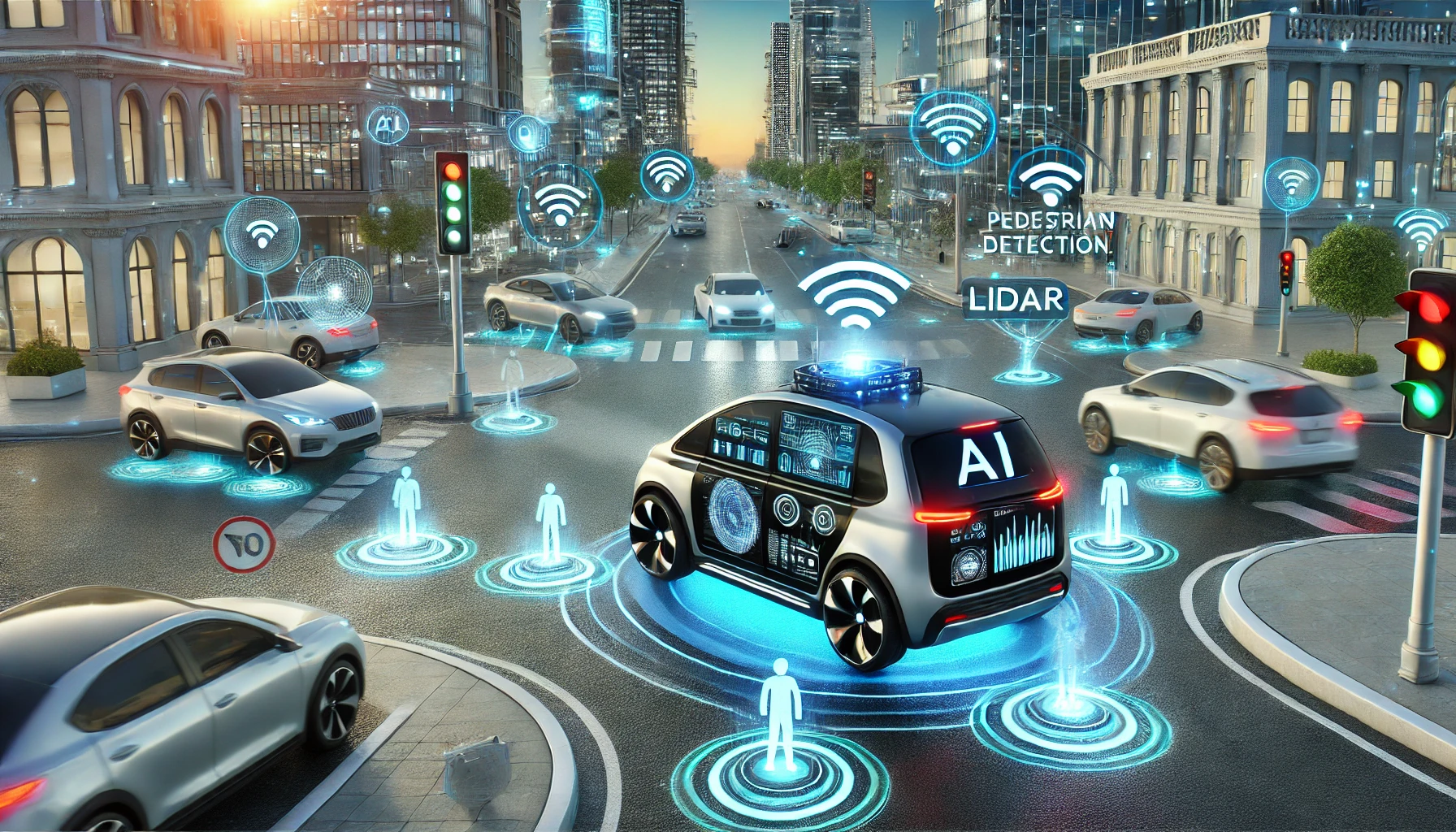Introduction
Artificial Intelligence (AI) is transforming the automotive industry, particularly in the realm of autonomous vehicles. From improving safety measures to optimizing fuel efficiency, AI-driven technologies are redefining how we perceive transportation. As self-driving cars become more prevalent, their ability to navigate roads safely and efficiently is heavily dependent on sophisticated AI systems.
This article explores how AI in autonomous vehicles enhances safety, efficiency, and performance, making self-driving technology a viable future for global transportation.
AI in Autonomous Vehicles: The Driving Force of Innovation
Autonomous vehicles rely on AI to interpret and react to their surroundings. By leveraging machine learning, deep learning, and computer vision, AI enables self-driving cars to make split-second decisions that mimic human judgment.
How AI Powers Autonomous Vehicles
- Perception and Object Detection – AI helps vehicles detect pedestrians, cyclists, and other vehicles using cameras, radar, and LiDAR sensors.
- Decision-Making – AI algorithms process real-time data to make navigation and safety decisions.
- Path Planning and Control – AI predicts obstacles and calculates optimal routes for efficient travel.
- Human-Machine Interaction – AI enables cars to communicate with passengers and other vehicles for better coordination.
Enhancing Safety with AI in Autonomous Vehicles
One of the biggest advantages of AI in self-driving cars is its ability to prevent accidents and enhance road safety.
Collision Avoidance Systems
AI-powered sensors can detect potential collisions and take immediate corrective action. For example, Tesla’s Autopilot and Waymo’s self-driving cars use AI to anticipate and react to unpredictable traffic scenarios.
Real-Time Traffic Monitoring and Accident Prevention
AI-integrated navigation systems process traffic data in real time, allowing vehicles to:
- Adjust speeds based on congestion.
- Identify and avoid accident-prone areas.
- Communicate with traffic signals to optimize movement.
Driver Monitoring and Fatigue Detection
AI systems in semi-autonomous vehicles detect driver drowsiness or distraction and issue alerts, ensuring human intervention when necessary.
AI’s Role in Improving Vehicle Efficiency
AI plays a crucial role in enhancing fuel efficiency and reducing emissions in autonomous vehicles.
Optimized Energy Consumption
- AI predicts the best routes for fuel efficiency.
- Electric self-driving vehicles use AI to manage battery performance and extend range.
Adaptive Cruise Control and Smart Speed Management
AI-powered cruise control adjusts speed dynamically based on road conditions, leading to better fuel efficiency and lower emissions.
Traffic Flow Optimization
AI-enabled smart cities integrate self-driving cars with intelligent traffic systems to:
- Reduce unnecessary stops.
- Improve traffic movement.
- Minimize fuel wastage.
Performance Enhancement with AI in Self-Driving Cars
The ability of AI to enhance overall vehicle performance is another significant benefit.
Predictive Maintenance
AI-powered predictive analytics help detect potential vehicle failures before they occur, reducing downtime and repair costs.
AI-Powered Navigation and Mapping
AI continuously updates digital maps with real-time traffic and environmental conditions, ensuring seamless navigation even in complex urban landscapes.
Advanced Vehicle-to-Everything (V2X) Communication
AI enables self-driving cars to communicate with:
- Other vehicles to prevent collisions.
- Traffic infrastructure for seamless movement.
- Emergency response systems for faster accident reporting.
Challenges and Ethical Considerations
Despite its potential, AI in autonomous vehicles faces several challenges.
Legal and Regulatory Hurdles
Governments worldwide are still developing policies for self-driving technology, impacting the speed of AI adoption in the automotive industry.
Data Privacy and Cybersecurity Risks
Autonomous vehicles collect massive amounts of data, raising concerns about hacking and data misuse.
Ethical Dilemmas in AI Decision-Making
AI must make life-and-death decisions in emergencies, leading to moral debates on responsibility and accountability.
The Future of AI in Autonomous Vehicles
As AI technology continues to advance, the future of self-driving cars looks promising.
Full Autonomy and Smart Cities
AI will play a key role in transforming urban mobility with:
- Fully autonomous taxi services.
- AI-powered traffic management for reduced congestion.
Integration with 5G and IoT
The combination of AI, 5G, and the Internet of Things (IoT) will enable ultra-fast vehicle communication, making autonomous driving even safer.
